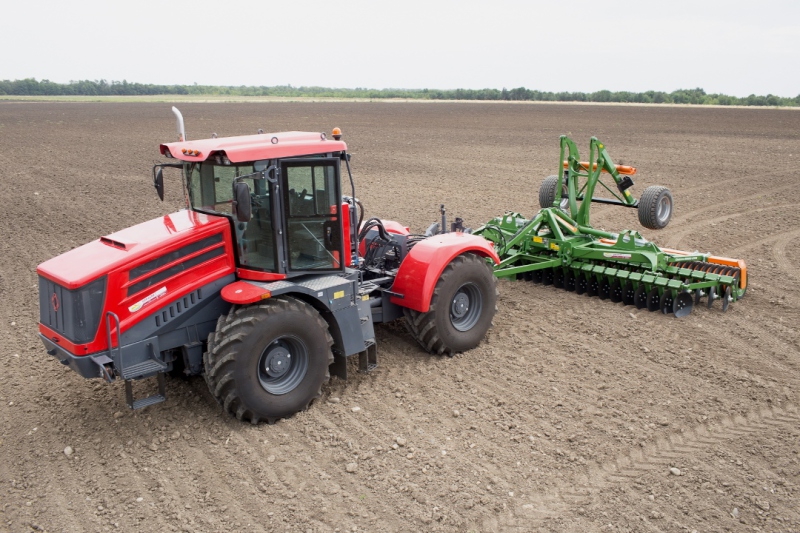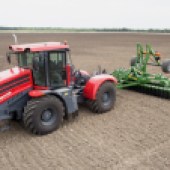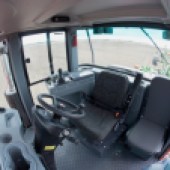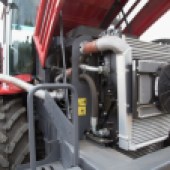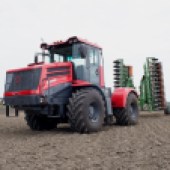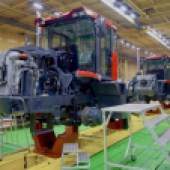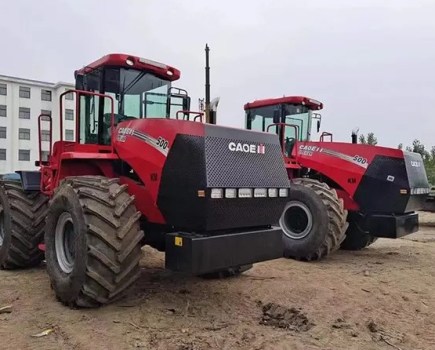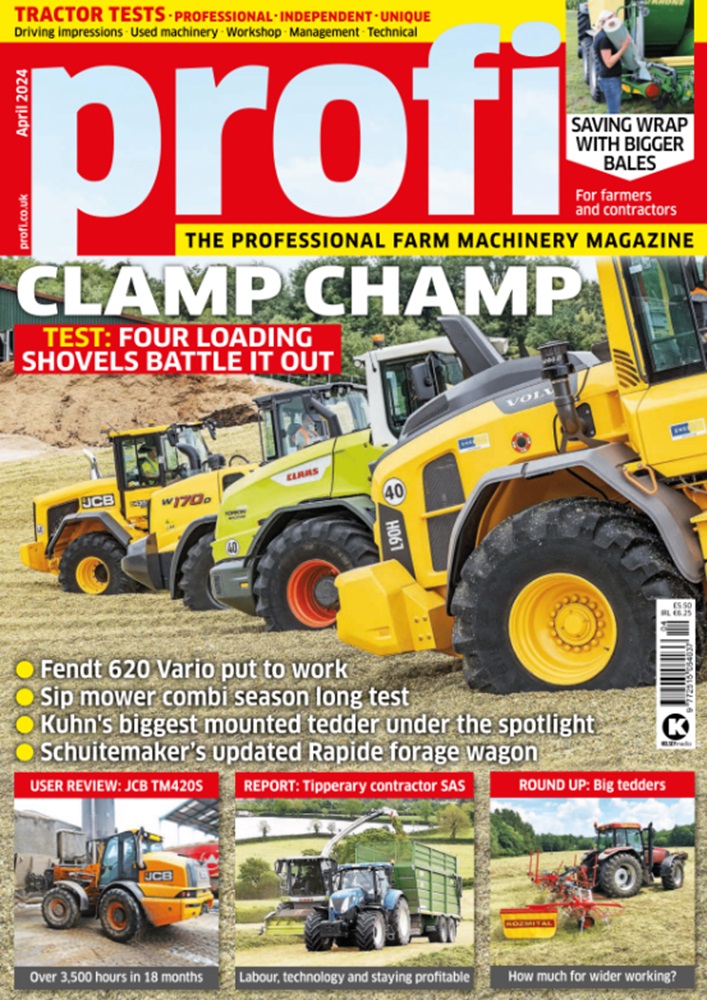In the west, the Russian manufacturer is commonly associated with ruggedly-built and basic articulated tractors for east European markets where operator comfort is not as high on the list of priorities as it is in the west. The home market remains the largest, with Kazakhstan second and Belarus third, but the Russian tractor maker has worked hard during recent years to update its tractors and give the brand a more modern image to appeal to west European markets, which could soon include the UK.
The first visible signs of Kirovets ambitions to sell more tractors in western Europe began in 2014 with a major overhaul of the K-744 Series (300-428hp). Keen to keep the momentum going, the newest version of this tractor, the 16t 435hp Mercedes-Benz powered Stage IV K-743, was unveiled at Agritechnica. The company also used the German show to test the European waters with the 240hp K-424, a new smaller and lighter 11t tractor.
A new power and weight segment for the firm’s articulated tractors, the K-424 is initially aimed at Russian farms with 500ha to 2,000ha. Power comes from a Russian-made 6-pot Stage IIIB Yamz common-rail engine, and unlike the in-house built tranny in the K-743, the electronically-controlled automatic transmission in the K-424 comes from ZF.
Just 2.5m-wide, like its bigger brother the K-424, the newly-developed control system sees the transmission control joystick, four hydraulic supply levers and electronic control panel, located in the armrest of the suspended seat.
Kirovets admits it must come with a Stage IV version for west European markets, and is something it is currently working on (possibly Cummins or Deutz). Expected to be ready sometime 2019, the company is keen to recruit dealers to sell the two new articulated tractors in Portugal, Spain, Italy and the UK.
When all Kirovets production is added together, the St. Petersburg facility made around 2,500 tractors in 2016, and expects to have made a similar number this year. Production of the new K-424, which in Russia costs from around €100,000, started at St. Petersburg in September. Output is currently running at five units per day.

